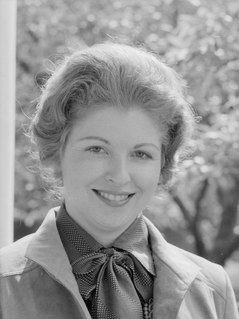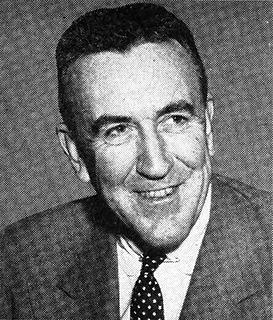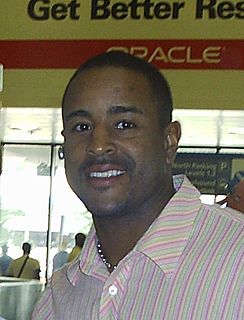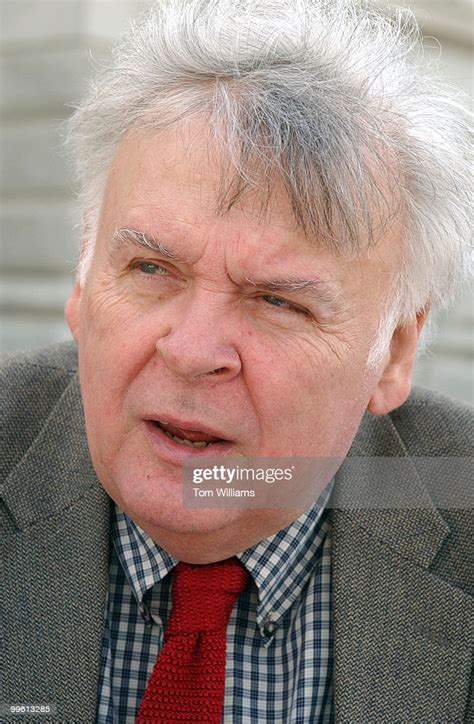A Quote by Mary Parker Follett
It is always the sign of the second-rate man when the decision merely meets the present situation. It is the left-over in a decision which gives it its greatest value. It is the carry-over in the decision which helps develop the situation in the way we wish it to be developed. The ablest administrators do not merely draw logical conclusions from the array of facts of the past which their expert assistants bring to them; they have a vision of the future.
Related Quotes
We all create expectations of what we would like to happen after a decision is made. The picture in our mind's eye might have served a valuable function in helping to make a decision. But once the decision is made, let the picture go. Since you can't control the future, the picture can create unhappiness if it's not fulfilled. Disappointment may make you miss the good that can come out of every situation in which you find yourself.
We are not here to advocate abortion. We do not ask this Court to rule that abortion is good or desirable in any particular situation. We are here to advocate that the decision as to whether or not a particular woman will continue to carry or will terminate a pregnancy is a decision that should be made by that individual. That, in fact, she has a constitutional right to make that decision for herself and that the state has shown no interest in interfering with that decision
How often are you worrying about the present moment? The present moment is usually all right. If you're worrying, you're either agonizing over the past which you should have forgotten long ago, or else you're apprehensive over the future which hasn't even come yet. We tend to skip over the present moment which is the only moment God gives any of us to live.
We feel that our actions are voluntary when they follow a decision and involuntary when they happen without decision. But if a decision itself were voluntary every decision would have to be preceded by a decision to decide - An infinite regression which fortunately does not occur. Oddly enough, if we had to decide to decide, we would not be free to decide
It is often by a trivial, even an anecdotal decision, that we direct our activities into a certain channel, and thus determine which of the potential expressions of our individuality become manifest. Usually we know nothing of the ultimate orientation or of the outlet toward which we travel, and the stream sweeps us to a formula of life from which there is no returning. Every decision is like a murder, and our march forward is over the stillborn bodies of all our possible selves that will never be.
Norman Mailer described the desire to be cool as a "decision to encourage the psychopath in oneself, to explore that domain of experience where security is boredom and therefore sickness and one exists in the present, in that enormous present which is without past or future, memory or planned intention.
Conclusions which are merely verbal cannot bear fruit, only those do which are based on demonstrated fact. For affirmation and talk are deceptive and treacherous. Wherefore one must hold fast to facts in generalizations also, and occupy oneself with facts persistently, if one is to acquire that ready and infallible habit which we call "the art of medicine".
































